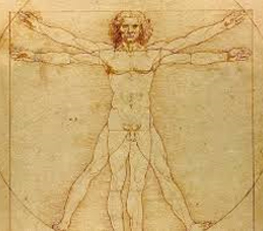(15-06-2018) Continuous use of anti-epileptic drugs increases your risk of dementia by 30%
(Natural News) People who continuously use anti-epileptic drugs aremore likely to have Alzheimer’s disease and dementia, according to a study published in theJournal of the American Geriatrics Society.
In the study, researchers at theUniversity of Eastern Finland and the German Center for Neurodegenerative Diseases (DZNE) looked at the effects of the continuous use of anti-epileptic drugs on the risk of dementia of any type and Alzheimer’s disease using two datasets.
The Finnish dataset was part of the nationwide register-based MEDALZ study, which includes the 70,718 individuals diagnosed with Alzheimer’s in Finland in 2005 to 2011 and their 282,862 controls. On the other hand, the German researchers studied the link between anti-epileptic drug use and dementia in the data of 20,325 people diagnosed with dementia in 2004-2011, and their 81,300 controls. The sample came from a large German statutory health insurance provider.
Results revealed that continuous use of anti-epileptic drugs for more than a year increased the risk of Alzheimer’s disease by 15 percent in the Finnish dataset, and a 30 percent increased risk of dementia in the German dataset. The researchers also compared various anti-epileptic drugs, wherein they found that the risk of Alzheimer’s disease and dementia was particularly associated with drugs that impair the cognitive function. These drugs increased the risk of Alzheimer’s disease by 20 percent, and 60 percent for dementia risk. Moreover, they discovered that the risk of dementia increases as the dose of a drug that damages cognitive function increases. Anti-epileptic drugs are not only used for epilepsy, but also in the treatment of neuropathic pain, bipolar disorder, and generalized anxiety disorder.
Natural treatments for epilepsy
Because of the adverse effects of medications for epilepsy, the interest in alternative therapies seems to be growing. In addition, anti-epileptic drugs do not work for everyone. Here are somenatural treatments for epilepsy:
Herbal treatments– The most commonly used herbs for epilepsy include burning bush, groundsel, hydrocotyle, lily of the valley, mistletoe, mugwort, peony, skullcap, tree of heaven, and valerian. A study in 2003 found that various herbal remedies used in traditional Chinese, Japanese Kampo, and Indian Ayurveda medicine have shown anticonvulsant effects.
Vitamins– Some vitamins may also help reduce the number of seizures due to epilepsy. One of the vitamins that could help is vitamin B6. It is used to treat pyridoxine-dependent seizures, which is a rare form of epilepsy. Magnesium is also helpful as severe magnesium deficiency may increase the risk of seizure, while vitamin E helps reduce the symptoms of epilepsy patients.
Changes in the diet– Some dietary changes may help reduce seizures as well. The ketogenic diet is the most often recommended diet for children with epilepsy. This diet is low in carbs and protein, but high in fats.
Self-control and biofeedback– Some patients with epilepsy try to control their brain activity to decrease the rate of seizures. They theorize that if you can detect symptoms of an upcoming seizure, you may be able to stop it. Self-control methods are used to prevent or reduce the intensity of the seizure. Several self-control strategies include meditation, walking, immersing in a task, and sniffing a strong odor. However, there is no assurance that any of these will always work. With biofeedback, electrical sensors are used to change brain ways to reduce seizures.
Acupuncture and chiropractic care– Acupuncture is an ancient Chinese practice used to help relieve chronic pain and other medical conditions. This alternative treatment may change brain activity to reduce seizures. Spinal manipulations in chiropractic care may also help the body heal itself. Some chiropractors use specific manipulations that help control seizures on a regular basis.
In addition to these, cannabidiol (CBD) was found toreduce seizures in halfamong severe epilepsy patients. Multiple studies have also shown that cannabis can potentially be used as a treatment for epilepsy patients.
Read more news stories and studies on harmful medicines by going toDangerousMedicine.com.
Sources include:
ScienceDaily.com
Healthline.com
News
In evidenza
 "L'informazione presente nel sito serve a migliorare, e non a sostituire, il rapporto medico-paziente."
"L'informazione presente nel sito serve a migliorare, e non a sostituire, il rapporto medico-paziente."
Per coloro che hanno problemi di salute si consiglia di consultare sempre il proprio medico curante.

Informazioni utili
-
Ricette a zona
-
Tabelle nutrizionali
-
Tabella composizione corporea
-
ABC della nutrizione






